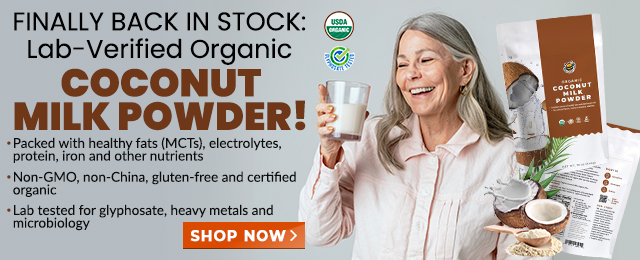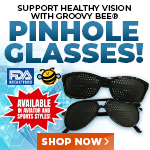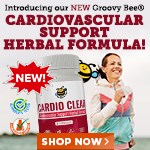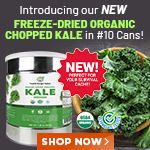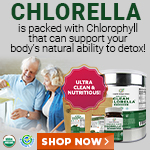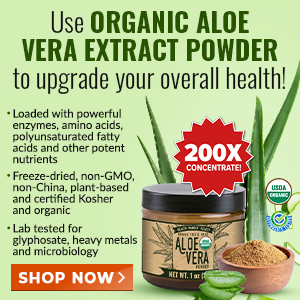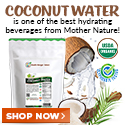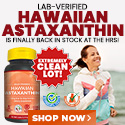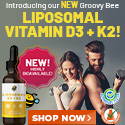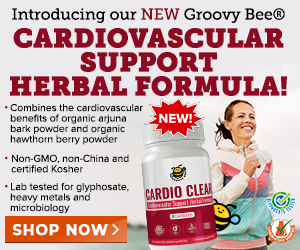
The top five foods for beating depression
Tuesday, October 03, 2006 by: Erin Bates
Tags: depression, nutrition, brain chemistry
- Newly released JFK files reveal Pentagon's role in creating Lyme disease and covid in the same lab
- Oncologist warns of ‘terrifyingly aggressive’ cancers in children, linked to immune suppression from COVID vaccines
- Trump administration CUTS FUNDING to Gavi, the Vaccine Alliance - a major blow to the Bill Gates-backed entity
- Health Ranger Report: Ashton Forbes discusses TELEPORTATION ORBS and their role in MH370 disappearance
- Musk targets “strangely wealthy” lawmakers in DOGE probe, names Pelosi, McConnell, Schumer
- NIH study, buried for decades, reveals that Flu Shots INCREASE elderly deaths, not prevent them
- EPA banned chemical linked to cancer, Parkinson's and fatal heart defects in babies - now industry is lobbying to get it reinstated
- Millionaire fitness coach charged in Tesla vandalism incident as anti-Musk attacks escalate
- “Ethically sourced” human “bodyoids” could usher in a new era of medical exploitation, raising disturbing ethical questions
- Woman contracts WORLD'S DEADLIEST VIRUS after unknowingly being given the WRONG VACCINE
- At least 75 percent of Americans are unknowingly MEDICATED FOR STUPIDITY by fluoridated water – Utah now banning it
- COVID-19 scandal linked to CANCER SURGE: Billionaire researcher sounds alarm
- Civil war is here – Multiple events, from conservatives being “swatted,” to attacks against Telsa owners, happening across America as Dem politicians are telling supporters to ‘fight in the streets”
- U.K. unveils controversial pandemic preparedness tool: A double-edged sword?
- Tackling the rubber waste crisis: Groundbreaking study reveals eco-friendly method to recycle tires
- DARPA: The shadowy innovator behind the world’s most advanced military technologies
- Homesteading Boom: How families are escaping cities to grow their own food
- Ancient kitchen secrets REVEALED: How garlic, ginger and green onions fight cancer and heart disease
- Newly released JFK files reveal Pentagon's role in creating Lyme disease and covid in the same lab
- Analysis: The coming economic collapse, a mass uprising and Trump's three secret weapons to halt the growing revolt
- Trump's greatest betrayal so far: Accelerating Middle East wars, silencing dissent, and serving Zionist masters
- CDC finally halts $11 billion COVID funding scam as health officials admit the ‘pandemic’ was a fraud
- The hidden dangers in your kitchen: How cooking methods impact diabetes, cancer and aging
- Kiss Your Genetic Privacy Good-Bye! 23andMe Gets Green Light to Sell Your Intimate Genetic Details to Anyone They Want
- DEADLY DECEPTION: How COVID vaccines increased mortality rates and why authorities hid the truth
- Dr. Suzanne Humphries makes bombshell appearance on Joe Rogan podcast, exposing vaccine industry deception back to POLIOMYELITIS
- Trump nominates VACCINE ZEALOT Susan Monarez to lead the CDC, sidelining RFK Jr.'s reform efforts
- Here are TEN all-natural ways to protect your garden without using harmful chemicals
- Woman contracts WORLD'S DEADLIEST VIRUS after unknowingly being given the WRONG VACCINE
- Senate Democrats deny censorship industrial complex existed, defend government's role in silencing dissent
- Black cumin seed oil emerges as a powerful ally against breast cancer and chronic inflammation
- Sugar-free deception: Artificial sweeteners hijack hunger signals, fuel obesity epidemic, study warns
- “Independent” anti-Russia outlet MEDUZA faces COLLAPSE as US funding dries up
- The Health Ranger releases “Vaccine Zombie” song and music video, using AI-animated zombies for the music video
- Discovery of vast underground city beneath Giza pyramids challenges human history
- Key nodes of Federal Government censorship
- Newly released JFK files reveal Pentagon's role in creating Lyme disease and covid in the same lab
- California's social media censorship law struck down: A victory for free speech or a threat to online safety?
- EPA advisor admits the agency is funneling billions to climate groups ahead of Trump’s return to White House
- The Health Ranger releases “Vaccine Zombie” song and music video, using AI-animated zombies for the music video
- Dr. Mike Yeadon releases 15-minute testimony - WATCH - about genocidal intent of COVID “vaccines”
- Florida takes a stand: DeSantis proposes permanent ban on mRNA vaccine mandates
- “Why we influenced the 2020 elections”: Facebook files reveal the coordinated effort to bury the Hunter Biden laptop story
- Mike Adams releases country western hit single: Goin’ Back in Time is Comin’ Home
- The pandemic as a tool for INDOCTRINATION: Understanding “The Indoctrinated Brain” by Dr. Michael Nehls
- Unpacking the Lies That We’ve Been Fed – new song and music video released by Mike Adams, the Health Ranger
- Mike Adams releases music poetry sensation: A Child of God
- House Intelligence Committee calls for the ARREST and PROSECUTION of Dr. Anthony Fauci
- Rep. Nancy Mace introduces bill to ban biological males from female facilities on federal property
- Michigan sheriff announces criminal investigation into 2020 election crimes, Dominion Voting Systems
- Peter Rost exposes Big Pharma corruption in his book “The Whistleblower: Confessions of a Healthcare Hitman”
- Migrants are taking advantage of recent hurricanes to scam residents and loot their homes
- Sugarcane extract superior to cholesterol-lowering drugs?
- Survival 101: Effective EMF blocking techniques
- Red Cross issues warning to stop blood plasma donations from vaccinated people
- Scientists confirm: GENIUS brain function can be spontaneously unleashed in humans without any apparent cause
- EPA advisor admits the agency is funneling billions to climate groups ahead of Trump’s return to White House
- HYSSOP: What research reveals about the health benefits of this ancient holy herb
- Two containers with completed ballots fall out of truck in Florida
- Fully vaccinated about to see “tsunami” of illness and death, warns virologist
- Global leaders unite to clamp down on “misinformation” with UN-backed Cascais Declaration
- BREAKING: 2025 NDAA authorizes mandatory military draft of WOMEN across America… as Pentagon pursues global NUCLEAR war with both Russia and China at the same time
- Michael Yon warns of a ZIONIST TAKEOVER in Trump’s second administration
- BOMBSHELL: DNA testing kits are a SCAM to develop ethnic-specific bioweapons
- Ozempic and Wegovy weight loss drugs are injectable LIZARD VENOM PEPTIDES that may unleash a devastating wave of organ failure… side effects align with symptoms of SNAKE BITES
- Israeli soldiers accused of even more torture and abuse in the West Bank
- These 13 countries just signed an agreement to engineer a global FAMINE by destroying food supply
- NASA admits that climate change occurs because of changes in Earth’s solar orbit, and NOT because of SUVs and fossil fuels
- RFK Jr. clears key hurdle: Sen. Susan Collins backs controversial HHS nominee, signaling a new era for health policy
- Sermon 30: How Jesus reveals Caesar’s FAKE CURRENCY and FALSE AUTHORITY
- Coriander seeds: Ancient medicine backed by modern science
- Arizona officials claim Maricopa County needs 10-13 days to tabulate results of the election
There are treatment options that can relieve depression without swallowing pills. Many of the symptoms of depression can be directly linked to vitamin and mineral deficiencies in the standard American diet, which is largely comprised of empty carbs, caffeine and sugar. Depression, mood swings and fatigue often have a common cause: poor nutrition. Avoiding depression or recovering from a depressive episode is often as easy as changing your diet and boosting your consumption of key foods that deliver brain-boosting nutrients and help regulate brain chemistry.
The five foods for beating depression
Fish oils: Contain omega-3 fatty acids. Research has shown that depressed people often lack a fatty acid known as EPA. Participants in a 2002 study featured in the Archives of General Psychiatry took just a gram of fish oil each day and noticed a 50-percent decrease in symptoms such as anxiety, sleep disorders, unexplained feelings of sadness, suicidal thoughts, and decreased sex drive. Omega-3 fatty acids can also lower cholesterol and improve cardiovascular health. Get omega-3s through walnuts, flaxseed and oily fish like salmon or tuna.Another top food for delivering imega-3 fatty acids is chia, and we currently recommend two sources for chia seeds:
Good Cause Wellness
IntegratedHealth.com
Brown Rice: Contains vitamins B1 and B3, and folic acid. Brown rice is also a low-glycemic food, which means it releases glucose into the bloodstream gradually, preventing sugar lows and mood swings. Brown rice also provides many of the trace minerals we need to function properly, as well as being a high-fiber food that can keep the digestive system healthy and lower cholesterol. Instant varieties of rice do not offer these benefits. Any time you see "instant" on a food label, avoid it.
Brewer's Yeast: Contains vitamins B1, B2 and B3. Brewer's yeast should be avoided if you do not tolerate yeast well, but if you do, mix a thimbleful into any smoothie for your daily dose. This superfood packs a wide assortment of vitamins and minerals in a small package, including 16 amino acids and 14 minerals. Amino acids are vital for the nervous system, which makes brewer's yeast a no-brainer for treating depression.
Whole-grain oats: Contain folic acid, pantothenic acid and vitamins B6 and B1. Oats help lower cholesterol, are soothing to the digestive tract and help avoid the blood sugar crash-and-burn that can lead to crabbiness and mood swings. Other whole grains such as kamut, spelt and quinoa are also excellent choices for delivering brain-boosting nutrients and avoiding the pitfalls of refined grains such as white flour.
Cabbage: Contains vitamin C and folic acid. Cabbage protects against stress, infection and heart disease, as well as many types of cancers, according to the American Association for Cancer Research. There are numerous ways to get cabbage into your diet; toss it in a salad instead of lettuce, use cabbage in place of lettuce wraps, stir fry it in your favorite Asian dish, make some classic cabbage soup or juice it. To avoid gas after eating cabbage, add a few fennel, caraway or cumin seeds before cooking. Cabbage is also a good source of blood-sugar-stabilizing fiber, and the raw juice of cabbage is a known cure for stomach ulcers.
Also worth mentioning: Foods like raw cacao, dark molasses and brazil nuts (high in selenium) are also excellent for boosting brain function and eliminating depression. Get raw cacao and brazil nuts at Nature's First Law. Another source for cacao is Navitas Naturals.
Things to avoid
If you feel you are depressed or at risk for depression, you also need to avoid certain foods and substances. Some commonly prescribed drugs -- such as antibiotics, barbiturates, amphetamines, pain killers, ulcer drugs, anticonvulsants, beta-blockers, anti-Parkinson's drugs, birth control pills, high blood pressure drugs, heart medications and psychotropic drugs -- contribute to depression. If you are taking any of these, don't quit them without talking to your doctor; but be aware that they may be contributing to your condition by depleting your body of depression-fighting vitamins and minerals.You should also avoid caffeine, smoking and foods high in fat and sugar. Keeping your blood sugar stable and getting B vitamins is important for stabilizing your mood. Cacao can be good for mood because it releases endorphins in the brain, but watch out for milk chocolate and candy varieties high in sugar.
Other non-food things to do
- Get plenty of sunshine. Natural sunlight is a proven cure for depression.
- Engage in regular exercise at least three times per week. Exercise lifts and mood and alters brain chemistry in a positive way.
- Experience laughter. It's good medicine.
- Take a quality superfood supplement to get even more natural medicine from the world of plants.
###
Depression at FETCH.news
Get independent news alerts on natural cures, food lab tests, cannabis medicine, science, robotics, drones, privacy and more.
Take Action: Support Natural News by linking to this article from your website
Permalink to this article:
Embed article link: (copy HTML code below):
Reprinting this article:
Non-commercial use OK, cite NaturalNews.com with clickable link.
Follow Natural News on Facebook, Twitter, Google Plus, and Pinterest
Science News & Studies
Medicine News and Information
Food News & Studies
Health News & Studies
Herbs News & Information
Pollution News & Studies
Cancer News & Studies
Climate News & Studies
Survival News & Information
Gear News & Information
News covering technology, stocks, hackers, and more



"Big Tech and mainstream media are constantly trying to silence the independent voices that dare to bring you the truth about toxic food ingredients, dangerous medications and the failed, fraudulent science of the profit-driven medical establishment.
Email is one of the best ways to make sure you stay informed, without the censorship of the tech giants (Google, Apple, Facebook, Twitter, YouTube, etc.). Stay informed and you'll even likely learn information that may help save your own life."
–The Health Ranger, Mike Adams












